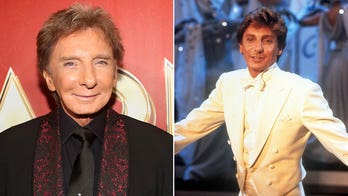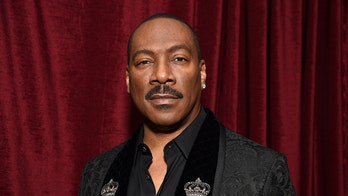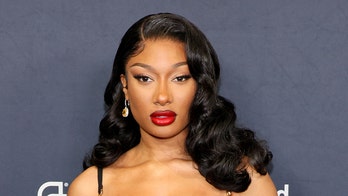LOS ANGELES – From "Homeland," "24" and "Hostel" to "Sons of Anarchy," "Zero Dark Thirty," "Django Unchained" and "The Deer Hunter," Hollywood has long used intense torture scenes as a means of entertainment.
But that hasn’t stopped some of the industry's key players from condemning the enhanced interrogation techniques described in last week’s Senate Intelligence Committee report on the CIA’s detention and interrogation program.
"Any country in a leading democracy must set an example," Angelina Jolie told BBC Arabic.
"There are reasons why we have (the) Geneva Convention and we must follow them,” said Jolie, whose latest film, “Unbroken," chronicles an American athlete held as a Japanese prisoner of war during World War II. “If we are to be who we represent ourselves to be, as Americans and as a democracy, we have to lead the way and handle ourselves in a manner which is respectful to other human beings."
Stephen Colbert called the 528-page Intelligence Committee report a “travesty.” Mia Farrow tweeted links to articles that "CIA torturers should be prosecuted.” Russell Brand claimed in a video blog that "if rape is being used to get info, then we're already in hell.” Saturday Night Live gave it the satirical treatment with a cold-open centered on Charlie Rose interviewing the two psychologists tasked with designing the program.
Their outrage has prompted players in both the entertainment and counterterrorism fields to ask why content creators glorify torture in the reel world but condemn its use in the real world.
"There are so many hypocrisies from the Hollywood crowd. It is all driven by money, and there is no ethical code that governs other professions," said James Williamson, retired U.S. Special Forces colonel and co-founder of OPSEC, a non-profit organization that seeks to stop politicians from capitalizing on national security operations and secrets.
"If torture scenes make money for the film industry, it is good. If it is popular to speak out against it out of some naïve and misguided social statement, then that is good too."
Hollywood’s stock response is that "Movies and TV are designed to entertain, not serve as documentaries," says Variety's Brian Lowry. But he says Hollywood — wittingly or not — has “helped carry the CIA's water."
So does the industry have a responsibility at least to portray its torture scenes without embellishments or historical rewrites?
"If Hollywood depicts these measures for entertainment reasons — not because of factual reasons — then it is using it to sell tickets, and that is glorifying it," says actor and security expert Tony Schiena, who works closely with the entertainment industry as CEO of the Multi Operational Security Agency Intelligence Company (MOSAIC) security firm. "They have a responsibility in telling stories using facts. Making a fictional story using torture measures makes them complicit."
Others question why people who oppose interrogation techniques like waterboarding and rectal feeding are willing to pay to watch it in on the big screen.
"Hollywood is a follower of public opinion more than it is a creator of it," said Los Angeles-based entertainment attorney Julian Chan. "As such, it should be a mirror and continue to show us what we are thinking about."
Some predict the controversy over the Intelligence Committee report may bring torture scenes in Tinseltown to a short-term halt, but it likely won't have any lasting impact.
"Hollywood may look at not depicting torture short-term, or at least not favorably, but eventually that, too, will pass," said Del Wilber, a former federal government intelligence and counterterrorism operative. "If the audience wants to see bad guys getting roughed up, that's what they will get to fill the theaters."






